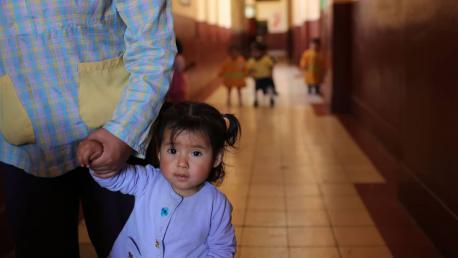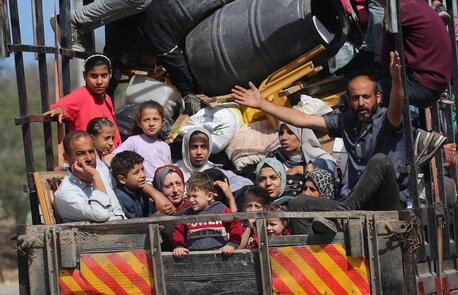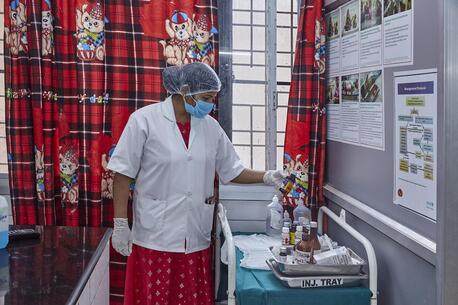
Children's Health
UNICEF works nonstop to help end preventable maternal, newborn and child deaths by scaling up essential care services, increasing immunization coverage and strengthening health systems to better respond to outbreaks. Learn more.
The world has achieved dramatic reductions in child mortality since 1990. Globally, the number of deaths of children under age 5 has dropped by 59 percent.
But progress has slowed, and there is much more work to be done. Tens of thousands of children still die every day from preventable or treatable causes related to lack of basic health care and other factors, such as poor nutrition and unsafe water. Many child deaths are the result of conflict and other humanitarian emergencies.
UNICEF believes in the right of every child to be healthy — to not only survive, but to thrive.
How is UNICEF working to improve children's health?
Through its many public and private partnerships, and operating at the global, national and community levels, UNICEF engages in a number of activities, including:
- ending preventable maternal, newborn and child deaths by scaling up essential care services
- strengthening immunization programs to make sure every child is reached with lifesaving vaccines
- responding to disease outbreaks and building resilience within health systems to ensure that services can continue — even during a crisis
- supporting early childhood development programs to make sure babies are getting what they need for a healthy start in life
- supporting adolescent health and well-being — both physical and mental — including children with disabilities
- expanding access to HIV testing and treatment and preventing mother-to-child transmission to help advance toward an AIDS-free world
- improving access to safe water and sanitation, promoting and enabling best hygiene practices like handwashing and toilet use to reduce the spread of disease
- delivering emergency relief whenever and wherever disaster strikes, protecting children and families and assist with recovery
Help UNICEF continue to improve and sustain access to the quality health care vulnerable children need to get healthy — and to stay healthy — so they can reach their full potential. Donate today.





